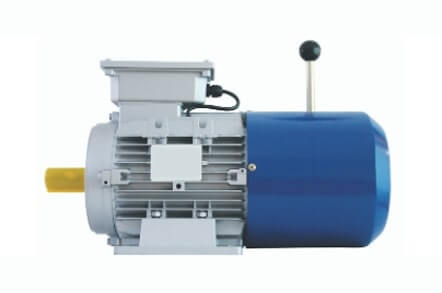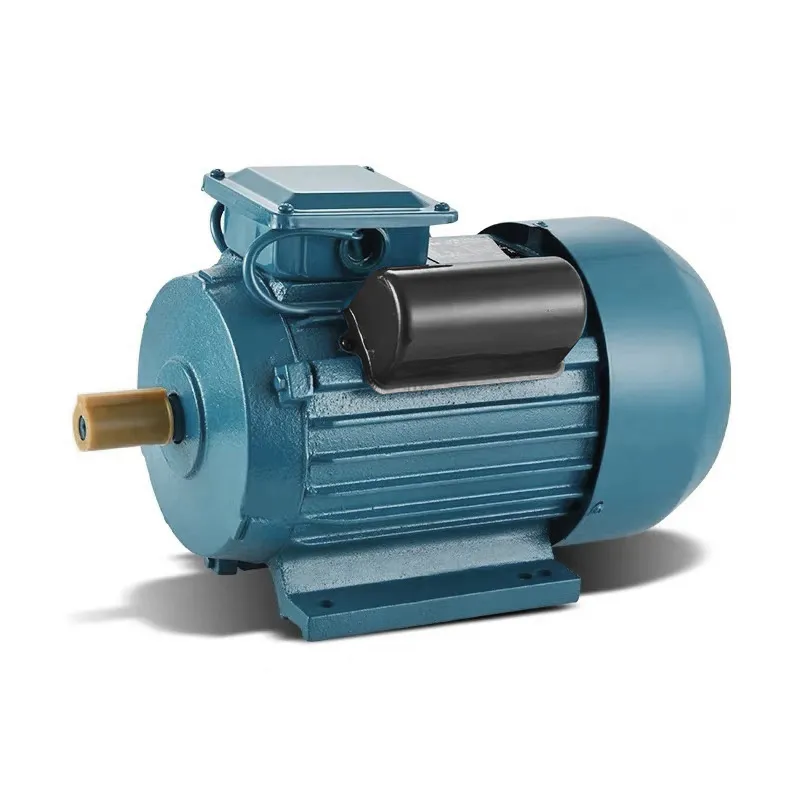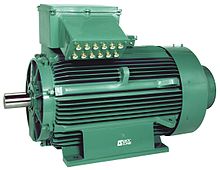Product Description
Servo motor 180w Three-Phase AC Servo Motor with high quality
Servo motor refers to the motor that controls the operation of mechanical components in a servo system. The servo motor can control the speed and position very precisely, converting the voltage signal into torque and speed to drive the control object. Servo motor rotor speed is controlled by the input signal, and can respond quickly, in the automatic control system, used as an executive component, can be received into the motor shaft angular displacement or angular speed output. Servo motors are divided into DC and AC servo motors. Stepper motor and servo motor are both motion control products, but there are some differences in performance and application.
Product Description
Specification
|
Item |
Value |
|
Warranty |
1 year |
|
Place of Origin |
China |
|
Brand Name |
CHINAMFG |
|
Model Number |
DS2/DM1 |
|
Type |
SERVO MOTOR |
|
Frequency |
50HZ |
|
Phase |
Single-phase/Three-phase |
|
AC Voltage |
220V 0.1KW-5.5KW |
|
Feedback |
Support multi-loop 16bit absolute encoder |
|
23bit communication single-loop absolute encoder (with battery added, it can function as multi-loop absolute encoder) |
|
|
Using Temperature |
0-45ºC |
Applications
Servo motor and servo drive systems are widely used in many fields, including machine tools, 3C electronic equipment manufacturing, packaging machinery, textile machinery, plastic machinery, medical equipment, food machinery, rubber machinery, printing machinery, and other industries
Packing & Delivery
Packing Method
Outer packing: Standard export carton with required shipping marks.
Inner packing: Waterproof packing with shock absorbing EPE and cardboard surrounded.
As per the client‘s requirement.
Company Profile
LUNYEE Group is a leading manufacturer for factory automation(FA) products. We are dedicated in power transmission and motion control solutions.
We have a professional technical team, from research and development, design, production, assembly to after-sales one-stop service.
We manufacture power transmission products like servo motor and control kits, AC and DC (brush/ brushless) gear motor, stepping motor, spindle motor, and so on.
We Focus On Customer Satisfaction.
We recognize ourselves as eyes and ears for our customers! One professional QC department is built up to inspect all the manufacture process according to international quality standard and our customers’ special requirement! All the products from CHINAMFG can enjoy a warranty from us. Welcome to contact us for cooperation.
Q&A
Q: Are you trading company or manufacturer?
A: We are the motor manufacturer for 15 years history in China.
Q: How long is the delivery, producing and shipping?
A: Deliver time depends on the quantity you order. We have product in stock will delivery fast. If customized, it usually takes 10-20 working days.
Q: Do you have customized service for your standard goods?
A: Yes, customized service acceptable.
Q: How do you make sure alternator quality?
A: We have our own inspection procedures. Every model we have a standard design and test few models before mass production. Also the CE and ISO standard make production goes well. For production process, random inspection will be arranged and final test to make sure qualified products before shipping.
Q: What is your after-sales services?
A: We would supply the free maintenance within 12 months guarantee. We would supply the professional solutions during using.
/* January 22, 2571 19:08:37 */!function(){function s(e,r){var a,o={};try{e&&e.split(“,”).forEach(function(e,t){e&&(a=e.match(/(.*?):(.*)$/))&&1
| Application: | Industrial |
|---|---|
| Speed: | Variable Speed |
| Number of Stator: | Three-Phase |
| Function: | Driving, Control |
| Casing Protection: | Closed Type |
| Number of Poles: | 4 |
| Samples: |
US$ 280/Piece
1 Piece(Min.Order) | |
|---|
| Customization: |
Available
|
|
|---|

Can AC motors be used in both residential and commercial settings?
Yes, AC motors can be used in both residential and commercial settings. The versatility and wide range of applications of AC motors make them suitable for various environments and purposes.
In residential settings, AC motors are commonly found in household appliances such as refrigerators, air conditioners, washing machines, fans, and pumps. These motors are designed to meet the specific requirements of residential applications, providing reliable and efficient operation for everyday tasks. For example, air conditioners utilize AC motors to drive the compressor and fan, while washing machines use AC motors for agitating and spinning the drum.
In commercial settings, AC motors are extensively used in a wide range of applications across different industries. They power machinery, equipment, and systems that are crucial for commercial operations. Some common examples include:
- Industrial machinery and manufacturing equipment: AC motors drive conveyor belts, pumps, compressors, mixers, fans, blowers, and other machinery used in manufacturing, production, and processing facilities.
- HVAC systems: AC motors are used in commercial heating, ventilation, and air conditioning (HVAC) systems to drive fans, blowers, and pumps for air circulation, cooling, and heating.
- Commercial refrigeration: AC motors are utilized in commercial refrigeration systems for powering compressors, condenser fans, and evaporator fans in supermarkets, restaurants, and cold storage facilities.
- Office equipment: AC motors are present in various office equipment such as printers, photocopiers, scanners, and ventilation systems, ensuring their proper functioning.
- Transportation: AC motors are used in electric vehicles, trams, trains, and other forms of electric transportation systems, providing the necessary propulsion.
- Water and wastewater treatment: AC motors power pumps, mixers, and blowers in water treatment plants, wastewater treatment plants, and pumping stations.
The adaptability, efficiency, and controllability of AC motors make them suitable for a wide range of residential and commercial applications. Whether it’s powering household appliances or driving industrial machinery, AC motors play a vital role in meeting the diverse needs of both residential and commercial settings.

How do AC motors contribute to the functioning of household appliances?
AC motors play a crucial role in the functioning of numerous household appliances by converting electrical energy into mechanical energy. These motors are used in a wide range of devices, powering various components and performing essential tasks. Let’s explore how AC motors contribute to the functioning of household appliances:
- Kitchen Appliances: AC motors are found in various kitchen appliances, such as refrigerators, freezers, dishwashers, and blenders. In refrigerators and freezers, AC motors drive the compressor, which circulates the refrigerant and maintains the desired temperature. Dishwashers use AC motors to power the water pumps, spray arms, and the motorized detergent dispenser. Blenders utilize AC motors to rotate the blades and blend ingredients.
- Laundry Appliances: AC motors are integral to laundry appliances like washing machines and clothes dryers. Washing machines rely on AC motors to power the agitator or the drum, facilitating the washing and spinning cycles. Clothes dryers use AC motors to rotate the drum and operate the blower fan, facilitating the drying process.
- Vacuum Cleaners: Vacuum cleaners utilize AC motors to generate suction and drive the motorized brush or beater bar. These motors power the fan or impeller, creating the necessary airflow for effective cleaning.
- Fans and Air Circulation: AC motors are employed in various types of fans, including ceiling fans, table fans, and pedestal fans. These motors drive the fan blades, producing airflow and facilitating air circulation to provide cooling or ventilation in rooms. Additionally, AC motors power exhaust fans used in kitchens, bathrooms, and range hoods to remove odors, smoke, or excess moisture.
- Air Conditioning and Heating Systems: AC motors are critical components in air conditioning and heating systems. They power the compressor, condenser fan, and blower fan, which are responsible for circulating refrigerant, dissipating heat, and delivering conditioned air throughout the house. AC motors enable the regulation of temperature and humidity levels, ensuring comfort in residential spaces.
- Garage Door Openers: AC motors are utilized in garage door openers to drive the mechanism responsible for opening and closing the garage door. These motors generate the necessary torque to lift or lower the door smoothly and efficiently.
- Other Appliances: AC motors are also found in a variety of other household appliances. For instance, they power pumps in water heaters, swimming pool filters, and sump pumps. AC motors are used in dehumidifiers, humidifiers, and air purifiers to drive the fans and other internal components. They are also present in audiovisual equipment, such as DVD players, record players, and fans used for cooling electronics.
In summary, AC motors are essential components in household appliances, enabling their proper functioning and delivering the mechanical energy required for various tasks. From kitchen appliances to laundry machines, fans, air conditioning systems, and more, AC motors provide the necessary power and functionality to enhance our daily lives.

Can you explain the basic working principle of an AC motor?
An AC motor operates based on the principles of electromagnetic induction. It converts electrical energy into mechanical energy through the interaction of magnetic fields. The basic working principle of an AC motor involves the following steps:
- The AC motor consists of two main components: the stator and the rotor. The stator is the stationary part of the motor and contains the stator windings. The rotor is the rotating part of the motor and is connected to a shaft.
- When an alternating current (AC) is supplied to the stator windings, it creates a changing magnetic field.
- The changing magnetic field induces a voltage in the rotor windings, which are either short-circuited conductive bars or coils.
- The induced voltage in the rotor windings creates a magnetic field in the rotor.
- The magnetic field of the rotor interacts with the rotating magnetic field of the stator, resulting in a torque force.
- The torque force causes the rotor to rotate, transferring mechanical energy to the connected shaft.
- The rotation of the rotor continues as long as the AC power supply is provided to the stator windings.
This basic working principle is applicable to various types of AC motors, including induction motors and synchronous motors. However, the specific construction and design of the motor may vary depending on the type and intended application.


editor by CX 2024-04-17